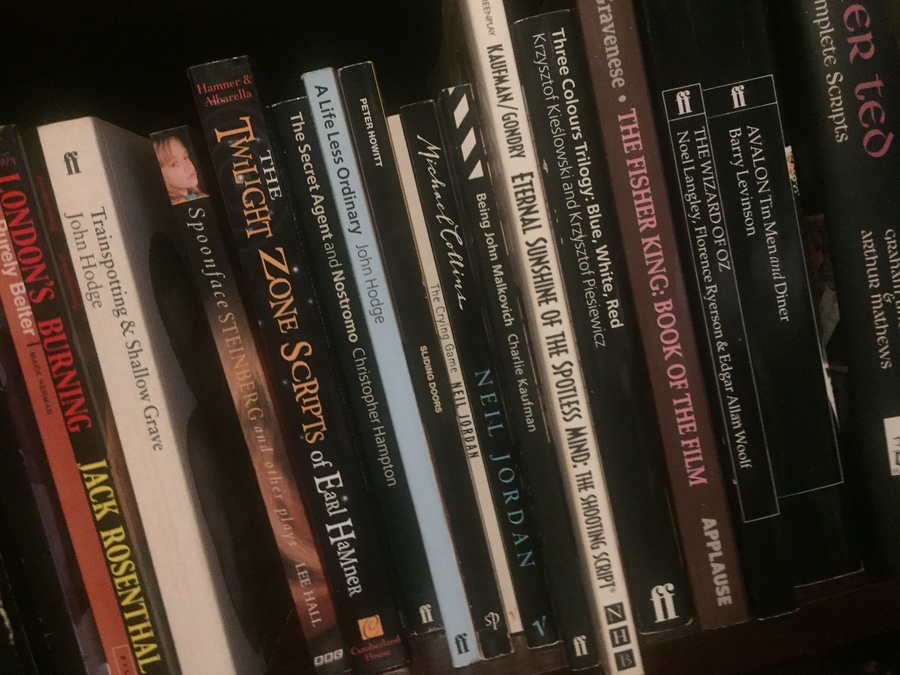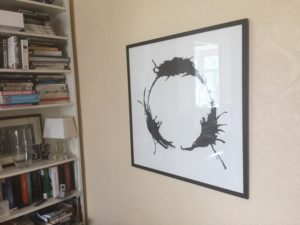I don’t think I’ve ever quite said this to you before but I regard it as a treat and a privilege that we get to chat. And I am especially conscious of this now as Self Distract has been dead for a month because of website problems. Oh, my lights, but it’s good to be back.
Now that we’re on speaking terms again – thank you A Small Orange internet service provider for rescuing the blog from the debris – I do of course want to talk to you about writing. It’ll just take a while to get there and I think along the way we’re going to explore something that applies to everything and everyone. Certainly to you and I.
At least certainly if you spend as much time thinking about words as I do. It’s not healthy of us, it really isn’t.
But one word that I particularly like is the German one ‘heimat’. There’s a famous German television drama of the 1980s called that and I never got around to watching it. What I learned about it, though, was that strictly speaking the word heimat means home. And, more importantly, that it really means much more than that – which English doesn’t have an equivalent to.
Then there’s the quote from Cervantes which goes something like this: “Reading a translation is like looking at the back of a tapestry”. Isn’t that wonderful? Such a vivid, instantly clear, instantly obviously right way to explain that you can get the pattern but you cannot see the colour.
Only, this is a favourite quote of mine for one specific reason: Cervantes originally said it in Spanish.
So as much as I believe I understand the thought, as an English-only speaker I am perhaps only looking at the back of it, at the pattern of the meaning instead of its full colour.
It’s thinking about this kind of stuff that means I heard of what’s often called the Sapir Whorf hypothesis a long time ago. If you only recently heard of it, that’s because you’ve just seen the film Arrival. If you’ve never heard of it before right this moment, please go see Arrival. (The screenplay is by Eric Heisserer and based on a short story by Ted Chiang. For once, I urge you to see the film instead of solely reading the screenplay but right now that script is available online. It won’t be there for long: it’s online as part of awards season and will be taken down in a few weeks. If you miss it, tell me: I lunged at the screen to save a copy for myself.)
The film exaggerates or at least takes this hypothesis on further than Edward Sapir or Benjamin Lee Whorf did and apparently many people think their idea is bollocks anyway. I’m fine with a film using a bollocks idea and taking it to somewhere as gorgeous as Arrival does, but I also think the hypothesis is right because of Heimat, because of Cervantes – and actually because of radio.
Writ very short, the Sapir Whorf hypothesis is that the language we use affects how we think, how we see the world. In Arrival, this is the start for a simply beautiful story and one so delicately drawn that it made me want to rip up all my own writing and start over.
But in Arrival and in the full Sapir Whorf hypothesis, the point is very specifically about a whole language, an entire language and not just a phrase book. If you speak French then your very thought patterns are subtly different to the way you think if you are a German speaker.
I am sure that’s true but I don’t know because I solely speak English and can’t compare anything. Yet I still think there’s something key about this idea even within my one single language. For instance, I suspect that writers think differently to, I don’t know, chefs. I was talking to someone once, for instance, who visibly could not grasp whatever small-talk subject it was until we found a way to translate it and use an example from his industry. That was an odd and somewhat long hour.
I am also entirely certain that I think the way I do because of radio. Tell me if this is you, too, but I can see that I’m shaped by having worked in radio. Specifically that my sense of time is different. There’s the time passing away for all of us but there’s also the time that you plan out for a show, that you plan out like time is a physical space.
So for instance even though it’s years since I worked in BBC radio, I still think in the terms top and bottom of the hour. I think of the first half of an hour as being an easy, downhill-fast run while the second half is an uphill climb. I can rationalise that by how you’re doing a show because you have something you’re excited to say and so naturally you want to get to it quickly. The start is easy because you want to rush in. The end is tough because you’ve got to pace out the piece, you’ve got to be sure you’ve included everything. But still, sod rationalisation: I think this so deeply that the top of the hour feels fast and easy to me, the bottom of the hour feels hard.
You do this in radio, I do it still in producing events and workshops, but I also just do it all the time. Like, all the time.
I do this and then I also think in terms of hard and soft items.
A hard item, if you’ve not heard it described this way before, is one that’s already prepared and has a fixed duration. Watch The One Show, for instance, and you’ll see a mix of interviews in the studio and little films, sometimes called VTs, sometimes packages. (VT is from videotape, when these things were played in to the show off a prerecorded tape. You’re too young to remember videotape and consequently I hate you.)
These video packages are hard items and the studio guest interviews are soft ones. It’s nothing to do with whether one or the other is hard-hitting, gritty journalism or light, cheery frippery. It’s that the hard one can’t be stopped where the soft one, the interview, can be as long or as short as you like if things have changed. You can wrap up an interview when you’re running out of time where you can’t stop a film package.
Actually, of course you can. I’ve not worked in this type of television but in radio you would distressingly often have to come out of a package early because something happened or you’d mis-timed when you should’ve started playing it in. Stopping a package early while not sounding like you just fell over the fader took skill: you had to listen live and listen for the right instant, the right moment when actually the presenter only paused but it sounded like it could be the end. Then you slam that fader shut and you start talking as if that were the end.
It’s called potting. You pot a package. Language is wonderful. The reason this is potting instead of, say, slamming-fader-ing, is that before radio desks had faders, they had round little knobs. They looked like teeny upside down pots. You can still see a million of them on music studio recording desks.
I think of potting, then, the same way that we talk about taping a TV show when really we mean marking it to record on our Sky or DVR box. We talk about videoing an event when we mean digitally capturing it on our phone.
More than the terms, though, more than the words I think in, knowing what potting is and having done it, I can always hear what I can only describe as a pot point. If I’m watching the news, I know when they could pot the item and move on. Sometimes you wish they would and that’s about time too.
What we do shapes us, that’s certain. What we have to think about shapes us, I’m sure. I’m conscious that I’m now thinking about this in obsessive detail because that’s what writers do, or at least it’s what I do as a writer. But having finally got us back onto the topic of writing, I offer this: Sapir Whorf gives us an insight into characters.
Knowing this, or at least believing it, has got to help us see into the characters we create and inhabit in our fiction and our drama. See how they think and you’ll know what they’ll do, you’ll feel what they feel.
Amongst everything else about this, I believe that the practice of trying to think how other people do is a good, hopeful and maybe optimistic thing in a time when we need all of that. Whether it’s the Sapir Whorf hypothesis or just my own special kind of bollocks, I think it means that we can change how we think by doing and talking and thinking about something new.
Listen, I’ve been waiting to discuss this with you for a month. Let’s go get a tea and maybe watch Arrival. Waddya say?

